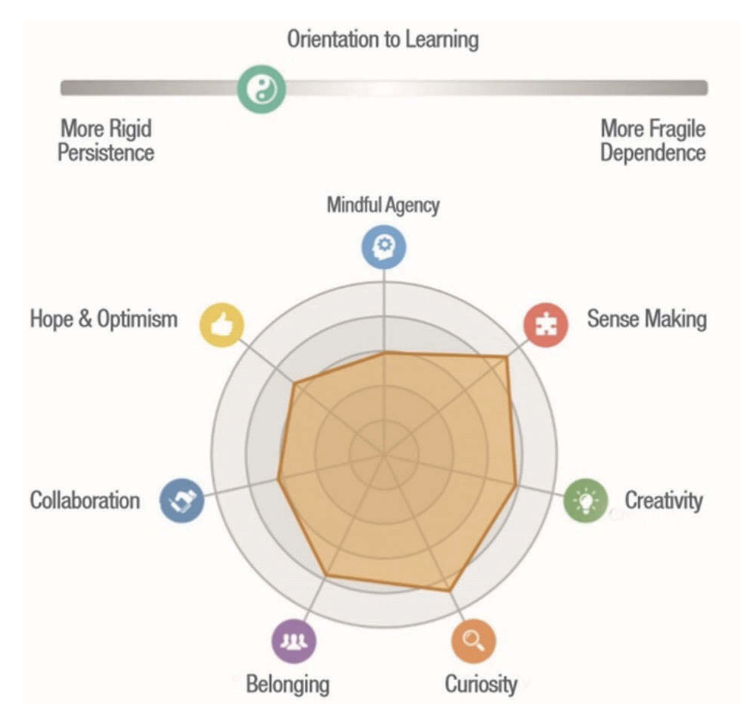 National bushfires. A global pandemic. Global social unrest. The disruption of higher education. And 2020 hasn’t even reached half-time. When the only constant is change, we need a distinctive set of personal qualities to adapt and thrive. But how do we talk about those qualities? Can we meaningfully assess them? And what does it look like when leadership values these qualities?
National bushfires. A global pandemic. Global social unrest. The disruption of higher education. And 2020 hasn’t even reached half-time. When the only constant is change, we need a distinctive set of personal qualities to adapt and thrive. But how do we talk about those qualities? Can we meaningfully assess them? And what does it look like when leadership values these qualities?
A long-standing stream of research has studied the dispositions, or ‘habits of mind’, that equip us with an openness to continuous learning. This work is now moving beyond formal educational contexts, and making an impact in forward-thinking organisations focusing on building their resilience.
 Previously… For over 20 years, Prof. Ruth Crick has been developing the conceptual foundations, and practical analytic tools, to help build the resilient agency of students, educators, and leaders in primary, secondary and tertiary education, and other sectors. Ruth brought this exciting work to UTS 2015-18, and continues to work with us as a Visiting Professor of Learning Analytics & Educational Leadership, jointly with CIC and the Institute for Sustainable Futures.
Previously… For over 20 years, Prof. Ruth Crick has been developing the conceptual foundations, and practical analytic tools, to help build the resilient agency of students, educators, and leaders in primary, secondary and tertiary education, and other sectors. Ruth brought this exciting work to UTS 2015-18, and continues to work with us as a Visiting Professor of Learning Analytics & Educational Leadership, jointly with CIC and the Institute for Sustainable Futures.
Back in 2012, Ruth and CIC’s director Simon Buckingham Shum, coined the term Dispositional Learning Analytics, convened the first workshop on the topic, sparking a new stream of work. Check out the applied R&D program in CIC which underpins the provision of the Learning Journeys platform at UTS, and visit the orientation website for students and staff for an introduction.
Connecting individual and organisational resilience… In her latest work, Ruth has been working closely with the regional water utility Hunter Water Corporation, to help their leadership tackle serious sustainability challenges confronting the region’s water supply. This exciting work argues for “an understanding of resilience which links the development of people as learning agents with sustainable professional practices at all levels of an organisation, including its external partners, its customers and its community.”
Crick, C. & Bentley, J. (2020): Becoming a resilient organisation: integrating people and practice in infrastructure services. International Journal of Sustainable Engineering (Published online: 1 June, 2020).
A systemic and integral approach to ‘organisational resilience’ is important if infrastructure providers are going to advance business strategies which contribute to the sustainable development of their regions. What is required is an understanding of resilience which links the development of people as learning agents with sustainable professional practices at all levels of an organisation, including its external partners, its customers and its community. This can then drive business transformation which empowers both a sustainability and a commercial value creation logic. This paper contributes to type resilience discussion by exploring the conceptual space between the notion of learning for resilient agency and the technical resilience required for sustainability in infrastructure services. We do this through a case-study of a water utility in New South Wales, Australia, which has constructed an integral model of resilience as a ‘working theory of change’. Particular attention is paid to the interface between the human systems and the technical systems as a critical ‘missing link’ in the resilience discourse.